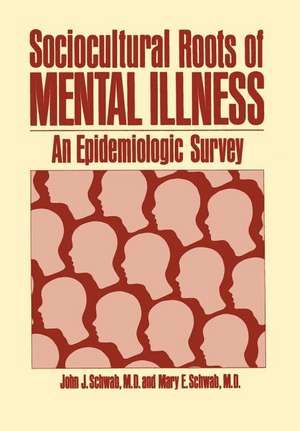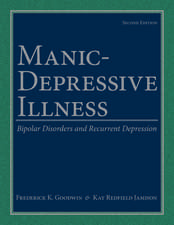Sociocultural Roots of Mental Illness: An Epidemiologic Survey: Topics in General Psychiatry
Autor J. Schwaben Limba Engleză Paperback – 25 noi 2012
Preț: 721.77 lei
Preț vechi: 759.76 lei
-5% Nou
Puncte Express: 1083
Preț estimativ în valută:
138.15€ • 150.12$ • 116.12£
138.15€ • 150.12$ • 116.12£
Carte tipărită la comandă
Livrare economică 21 aprilie-05 mai
Preluare comenzi: 021 569.72.76
Specificații
ISBN-13: 9781468424355
ISBN-10: 1468424351
Pagini: 356
Ilustrații: XIV, 338 p. 4 illus.
Dimensiuni: 170 x 244 x 19 mm
Greutate: 0.57 kg
Ediția:Softcover reprint of the original 1st ed. 1978
Editura: Springer Us
Colecția Springer
Seria Topics in General Psychiatry
Locul publicării:New York, NY, United States
ISBN-10: 1468424351
Pagini: 356
Ilustrații: XIV, 338 p. 4 illus.
Dimensiuni: 170 x 244 x 19 mm
Greutate: 0.57 kg
Ediția:Softcover reprint of the original 1st ed. 1978
Editura: Springer Us
Colecția Springer
Seria Topics in General Psychiatry
Locul publicării:New York, NY, United States
Public țintă
ResearchCuprins
1 · The Social Psychiatric Setting.- The development of psychiatry as a specialty.- social psychiatry and social change.- reasons for fluctuating interest in the field.- renewed interest in social psychiatry since World War II.- current fears of increased mental illness.- the “culture of violence.”.- 2 · Social Psychiatry: Definitions and Scope.- The recent development of social psychiatry.- definitions and distinguishing characteristics.- scope of social psychiatry: cause and treatment of mental illness, governmental programs, cultural influences, social control, the sicksociety?.- current status of social psychiatry.- psychiatry’s identity crisis.- 3 · The Epidemiologic Background.- Definitions of epidemiology.- Hippocrates.- mental epidemics.- historical background.- host, agent, and environment.- medical ecology.- 4 · Epidemiologie Terms, Concepts, and Levels of Investigation.- Hypotheses.- problems with case finding.- Farr’s studies of prisoners.- case, risk, and population at risk.- counting.- prevalence and incidence.- descriptive epidemiology.- investigative epidemiology.- analytic epidemiology.- experimental epidemiology.- 5 · Raw Materials and Tools Part 1 · Secondary Source Data.- “Secondhand information”.- Goldhamer and Marshall.- findings from rates-under-treatment studies.- trends in psychiatrie hospitalization.- data from death certificates.- suicide and homicide rates.- limitations and appropriate uses of secondary source data.- social indicator analyses.- key informant data.- 5 · Raw Materials and Tools Part 2 · Primary Source Data.- “Firsthand information”.- the survey approach.- sampling.- methodology for surveys.- methodology for cohort studies.- census investigations.- the social breakdown syndrome.- nationwide surveys.-scales.- sensitivity and specificity.- validity and reliability.- interviewer and response bias.- 6 · Associations and Causation.- Associations.- inferences about causation.- the concept of causation.- causation in psychiatry.- multiple causation.- ecologic concepts of causation.- 7 · Early History of Psychiatrie Epidemiology.- The sociology of knowledge.- the seventeenth and eighteenth century background.- extrusion of the mentally ill from society.- early nineteenth century studies.- Pinel.- Esquirol.- Burrows.- Griesinger.- Jarvis.- Daniel H. Tuke.- resumé.- 8 · The Problem: Concepts and Definitions of Mental Illness. ....- Definitions of health.- the myth of mental illness.- the medical model.- the social-statistical model.- the super-normal.- Sjöbring’s pathologic and normal variations.- the normative and cultural models.- impairment.- some current trends.- 9 · The Quest for Prevalence: Twentieth-Century Studies—1900–1950.- The neuropsychiatrie influence.- psychoanalytic and psychobiologic contributions.- early prevalence studies.- Williamson County, Tennessee study.- Norwegian coastal village study.- other studies in the 1940’s.- summary.- 10 · Social Correlates and Questions of Etiology: Twentieth-Century Studies—Since 1940.- Faris and Dunham’s “Mental Disorders in UrbanAreas”.- geographic distributions: Bristol and Hagerstown.- changing patterns.- social class and mental illness in New Haven.- the Midtown Manhattan study.- stress and strain.- stress and impairment.- low SES and high rates of mental disorder.- social causation and social selection.- drift.- social mobility.- labeling.- migration and mental illness.- Minnesota-Norway.- migration and social change.- 11 · The Community: Twentieth-Century Studies.- The Hutterites.- theStirling County study.- the integration-disintegration frame of reference.- Stirling County-The Road.- psychiatrie disorders among the Yoruba.- 12 · Later Twentieth-Century Studies.- Lundby, Sweden, Essen-Möller.- Lundby, Sweden, Hagnell.- the incidence of mental illness.- Lundby: predictive implications.- Stirling County and Lundby comparisons.- Iceland.- Midtown Manhattan re-study.- discussion and summary.- 13 · Assessing Hereditary and Sociocultural Factors: Genetics.- Background.- population genetics.- family and pedigree studies.- adoptee studies.- census studies.- longitudinal studies.- summary of findings: schizophrenia, manic-depressive illness, neurosis, alcoholism, intelligence.- 14 · Stress and Life Events.- The physiological background.- concepts of stress in psychiatry.- studies of healthy populations.- life events scales.- stress and mental illness.- 15 · Psychosomatic and Psychophysiologic Disorders.- Frequency and distribution: age, sex, race, and social class.- the concept of psychosomatic illness.- changing patterns.- coronary heart disease: Framingham and WCGS comparisons.- CHD and social psychologic factors.- social processes and psychosomatic illnesses.- 16 · Cultural Psychiatry.- Early psychiatric approaches.- early anthropologie approaches.- the convergence of interests.- ethnic psychoses.- culture and personality.- the concept of culture.- transcultural psychiatry.- culture and mental illness.- culture change.- cultural psychiatry in a complex society.- culture’s pathogenic influence.- acculturation.- culture’s therapeutic influences.- the cost of mental illness.- 17 · Findings and Issues.- Consistent findings.- is mental illness increasing?.- lower social status and high prevalence.- the problem of untreated mental illness.- the needfor theory.- 18 · Social Psychiatry: Concepts and Models.- Rabkin’s metapsychological model.- role performance and role strain.- consciousness, personality and behavior.- community integration.- disintegration.- stress-strain.- social change and social psychiatry.- Author Index.






















